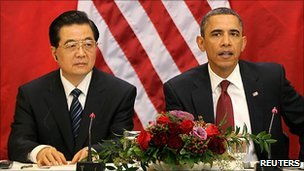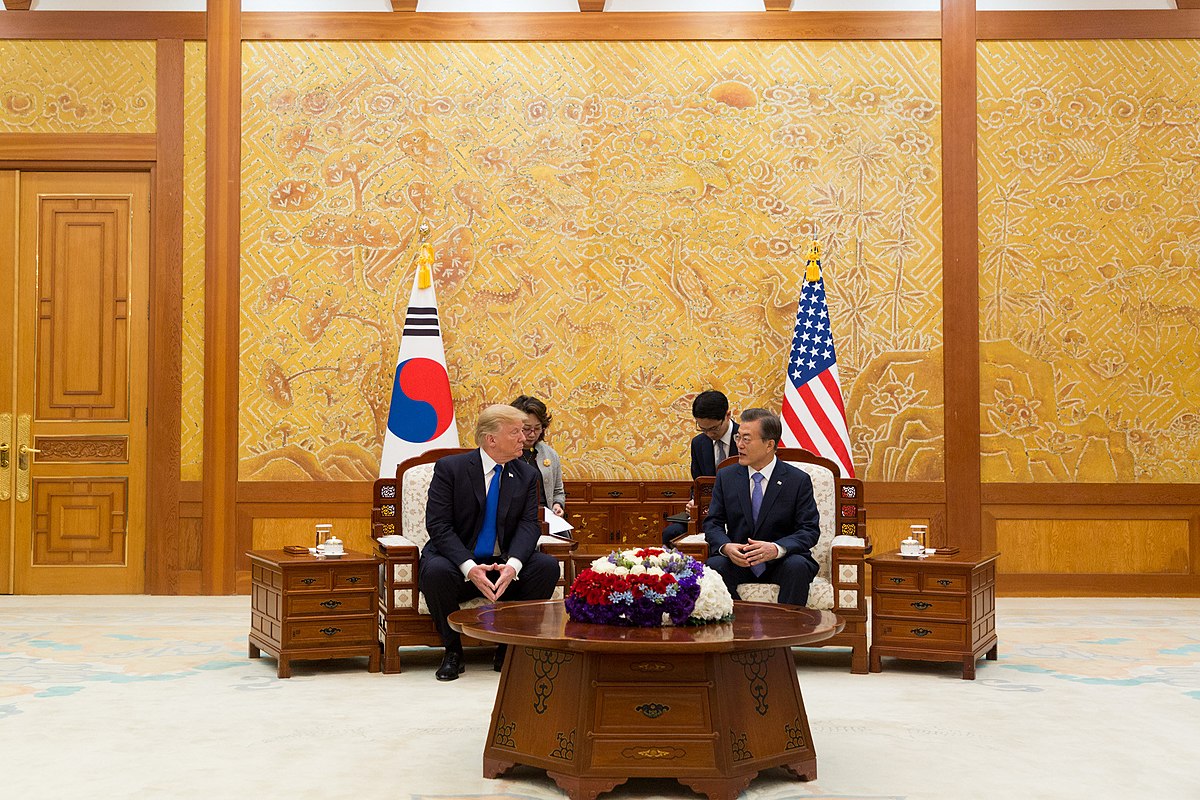[captionpix align=”left” theme=”elegant” width=”320″ imgsrc=”http://upload.wikimedia.org/wikipedia/commons/4/4e/Kurt_Campbell_with_Chen_Guangcheng_at_US_Embassy_May_1%2C_2012.jpg” captiontext=”Chinese activist Chen Guangcheng with US diplomat Kurt Campbell outside the US Embassy in Beijing”]
“A positive, cooperative, and comprehensive US-China relationship.” This is the shared commitment that President Barack Obama and President Hu Jintao secured after the latter’s visit to Washington in January 2011. Although this took place at a time of tension between Beijing and Washington, the visit streamed smoothly as Obama envisioned the “future United States” exceedingly linked with a dynamic Asia and Jintao hoped to found a strong legacy lasting after he steps down in 2013. After establishing agreements to cooperate on a variety of transnational and bilateral challenges, US-China relations improved along with the increase of international meetings and comprehensive talks – until now.
Chen Guangcheng is a blind activist from the Shandong province, who fought for justice and integrity while sacrificing his own freedom. He was provisionally praised by the Chinese government as an impoverished peasant fighting battles against local corruption. However, when his advocacies and confrontations became more extreme, extending against government policies, forced abortions, and oppressing tactics, he was in trouble. After being imprisoned for four years and under house arrest for nearly another two, Guangcheng fled to the American embassy in Beijing. It is speculated that he became very close and friendly with the American diplomats, but later their relationship turned sour and the embassy diplomats “lobbied” Guangcheng to leave. This led to a great deal of tension between the two countries, with Chinese officials demanding an American apology. Beijing was angered by the US’ perceived interference in its internal affairs, and Washington was infuriated by the Chinese government’s inacceptable treatment of activists and advocates. This obdurate issue in bilateral relations surfaced tensions that both China and America had previously buried or overcome.
Washington has committed to maintain amicable relations and cooperate with Beijing, regardless of human-rights concerns. However, this pledge continues to be obstructed by a number of arising strategic concerns. One such issue is mutual military trust – or rather suspicion. China has a prominent fear that the American government is keen on preventing its competition as a major global power, both militarily and economically. Due to tensions with Beijing in the South China Sea, Vietnam recently hosted a weeklong naval exchange with the US in late April. This continues to vex China due to their ongoing territorial disputes with the Philippines and Vietnam. Furthermore, China is beginning to feel more vulnerable due to Washington’s latest initiatives to strengthen regional alliances with nations such as Australia, South Korea, India, and the Philippines. The most troubling issue with this lack of Chinese-American military cooperation is the risk of provoking unintentional conflict.
The relationship between the US and Taiwan has been another concerning issue for the Chinese Government. Conceptually, militarily supporting Taiwan encourages the island nation’s dismissal of Chinese sovereignty. The White House has been strongly considering the sale of arms, including the F-16C/D jet fighters, to Taiwan. This, from China’s perspective, is an obstruction of their “core interests” and “cooperative rights” on the part of the US.
Both nations have strong motives to avoid any foreign-policy crises, let alone militarily motivated international conflict. With the upcoming US elections and the imminent leadership shift for the Chinese Communist Party, there is cautious hope that a Sino-American relationship will hold. However, it will only become more difficult for both nations to hold a soft line with the pressure of electoral change. After this unexpected fall through, attentive concentration on restoring, improving, and further advancing Sino-American relations is imperative for the future stability of both states—and by extension, the emerging global order itself.




